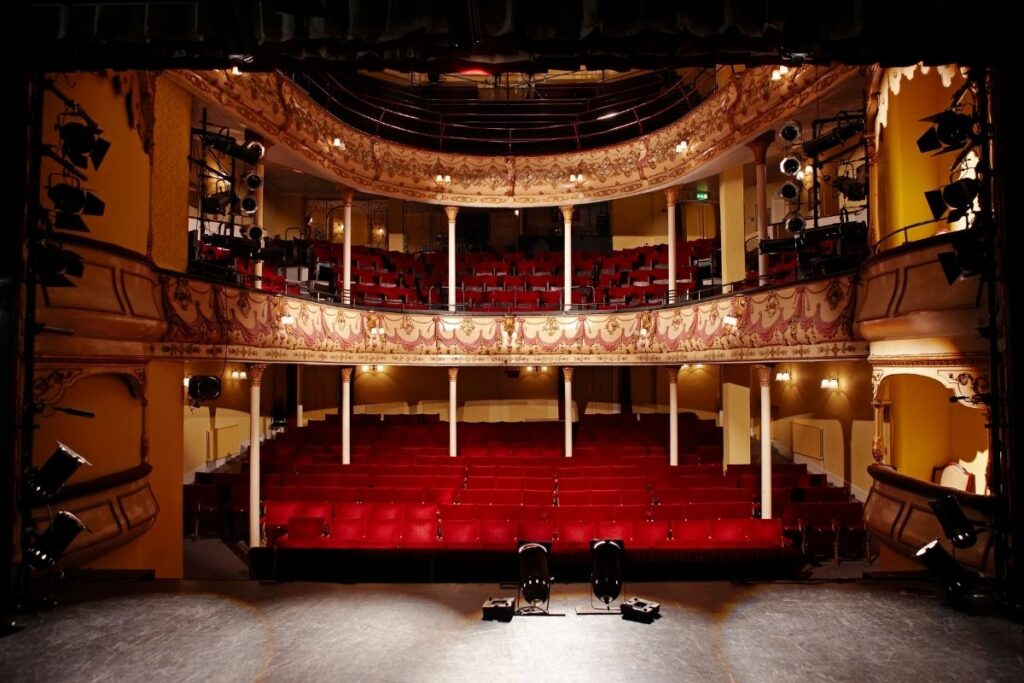Performing arts is a dynamic and exciting industry that encompasses a wide range of creative fields, from theater and dance to music and film. For those looking to pursue a career in the performing arts business, there are a variety of opportunities available that cater to different interests and skill sets.
In this blog post, we will explore the top 10 jobs in the performing arts business and provide valuable insights into how you can succeed in this competitive and rewarding industry.
1. Arts Administrator
Arts administrators play a crucial role in the performing arts business by overseeing the day-to-day operations of arts organizations, managing budgets, and coordinating events and programs. A background in business management, finance, or arts administration is essential for this role, as well as strong organizational and communication skills.
2. Talent Agent
Talent agents represent performers such as actors, musicians, and dancers, helping them secure roles and negotiate contracts with employers. To succeed as a talent agent in the performing arts business, you will need excellent networking skills, industry knowledge, and a keen eye for talent.
3. Stage Manager
Stage managers are responsible for ensuring that live performances run smoothly and according to schedule. They work closely with directors, performers, and technical staff to coordinate rehearsals, set changes, and other logistical aspects of a production. Attention to detail, multitasking abilities, and problem-solving skills are essential for this role.
4. Production Designer
Production designers are responsible for creating the visual look of a performance or production, including sets, costumes, and props. They work closely with directors and other creative team members to bring the artistic vision to life. A background in design, art, or theater production is important for this role, as well as strong creative and technical skills.
5. Marketing Manager
Marketing managers in the performing arts business are responsible for promoting shows, events, and organizations to attract audiences and drive ticket sales. They develop marketing campaigns, manage social media accounts, and collaborate with media outlets to generate buzz and interest. Creativity, strategic thinking, and a passion for the arts are key qualities for this role.
6. Casting Director
Casting directors are responsible for selecting actors and performers for roles in productions, films, and commercials. They work closely with directors and producers to find the right talent for each project, holding auditions and negotiating contracts with actors. Strong interpersonal skills, industry knowledge, and a good eye for talent are essential for this role.
7. Dance Choreographer
Dance choreographers create and teach dance routines for performances, productions, and events. They work closely with dancers to develop choreography that complements the music and storytelling of a piece. A background in dance, choreography, or performing arts is important for this role, as well as creativity, collaboration, and a strong understanding of movement.
8. Music Director
Music directors are responsible for leading musical performances, ensembles, and orchestras. They select music, rehearse musicians, and conduct performances to create a cohesive and engaging musical experience for audiences. A background in music, conducting, or music education is necessary for this role, as well as strong leadership and communication skills.
9. Lighting Designer
Lighting designers create and design lighting schemes for performances, events, and productions to enhance the mood, atmosphere, and visual impact of a show. They work closely with directors, production designers, and technical staff to create dynamic and effective lighting designs. Creativity, technical skills, and attention to detail are important for this role.
10. Talent Manager
Talent managers represent performers such as actors, musicians, and dancers, helping them navigate their careers, secure opportunities, and manage their professional development. They act as advocates for their clients, negotiating contracts, and advising on career decisions. Strong networking skills, industry knowledge, and a passion for supporting artists are essential for this role.
Conclusion
In the competitive world of the performing arts business, it is essential to stay informed about industry trends, build a strong professional network, and continually develop your skills and expertise.
By pursuing internships, attending workshops and conferences, and seeking mentorship from industry professionals, you can enhance your career prospects and position yourself for success in this dynamic and rewarding industry.
Key Takeaways:
- The performing arts business offers a diverse range of career opportunities in fields such as arts administration, talent representation, stage management, production design, marketing, casting, choreography, music direction, lighting design, and talent management.
- Success in the performing arts business requires a combination of industry knowledge, technical skills, creativity, networking abilities, and a passion for the arts.
- Building a strong professional network, staying informed about industry trends, pursuing internships, attending workshops, and seeking mentorship are essential strategies for advancing your career in the performing arts business.
For those looking to further enhance their skills and knowledge in the performing arts business, consider exploring the online courses and certificate programs offered by Yellowbrick. These programs provide valuable insights, practical skills, and industry connections to help you succeed in this competitive and rewarding industry.








